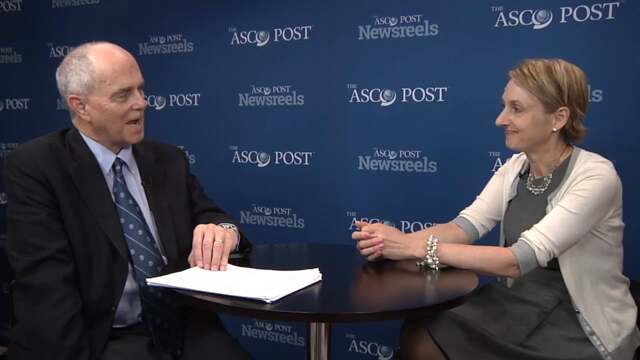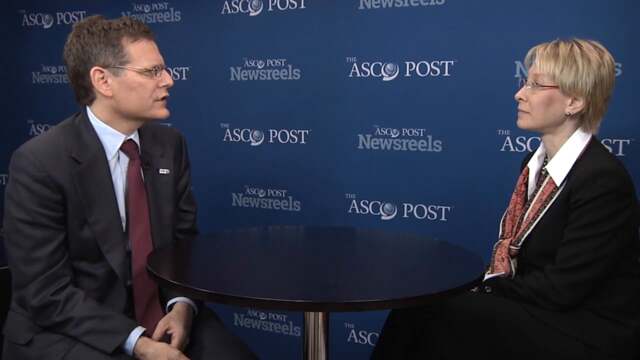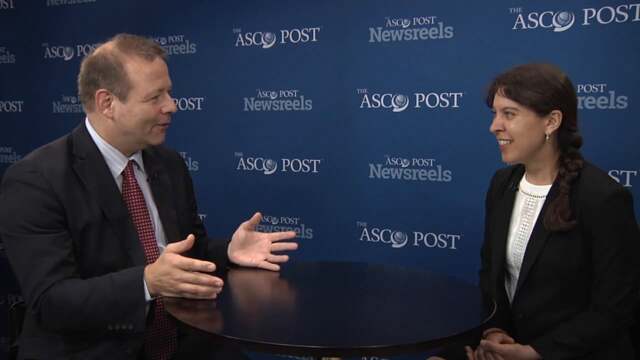Gregory T. Armstrong, MD, MSCE, on Late Mortality in Childhood Cancer Survivors
2015 ASCO Annual Meeting
Gregory T. Armstrong, MD, MSCE, of St. Jude Children's Research Hospital, discusses the findings of a landmark survivorship study (Abstract LBA2).
Laurie H. Sehn, MD, MPH, and James O. Armitage, MD
James O. Armitage, MD, of the University of Nebraska Medical Center, and Laurie H. Sehn, MD, MPH, of the British Columbia Cancer Agency, discuss a first-ever finding on obinutuzumab and bendamustine in the setting of rituximab-refractory indolent non-Hodgkin lymphoma (Abstract LBA8502).
Maura N. Dickler, MD and Clifford A. Hudis, MD
Clifford A. Hudis, MD, and Maura N. Dickler, MD, of Memorial Sloan Kettering Cancer Center, discuss adding bevacizumab to letrozole as a first-line endocrine therapy for treatment of hormone receptor–positive advanced breast cancer (Abstract 501).
Tony Mok, MD, and James O. Armitage, MD
James O. Armitage, MD, of the University of Nebraska Medical Center, and Tony Mok, MD, of The Chinese University of Hong Kong, discuss oncology from an international point of view.
Jedd Wolchok, MD, PhD, and Anthony J. Olszanski, RPh, MD
Anthony J. Olszanski, RPh, MD, of Fox Chase Cancer Center, and Jedd Wolchok, MD, PhD, of Memorial Sloan Kettering Cancer Center, discuss therapies for treatment-naive patients with advanced melanoma (Abstract LBA1).
Chloe Evelyn Atreya, MD, PhD, and Axel Grothey, MD
Chloe Evelyn Atreya, MD, PhD, of the University of California, San Francisco, talks with Axel Grothey, MD, of the Mayo Clinic, about new data on trametinib, dabrafenib, and panitumumab in patients with the BRAF V600E mutation and vemurafenib plus irinotecan and cetuximab in BRAF-mutated metastatic colorectal cancer (Abstracts 103 and 3511).





